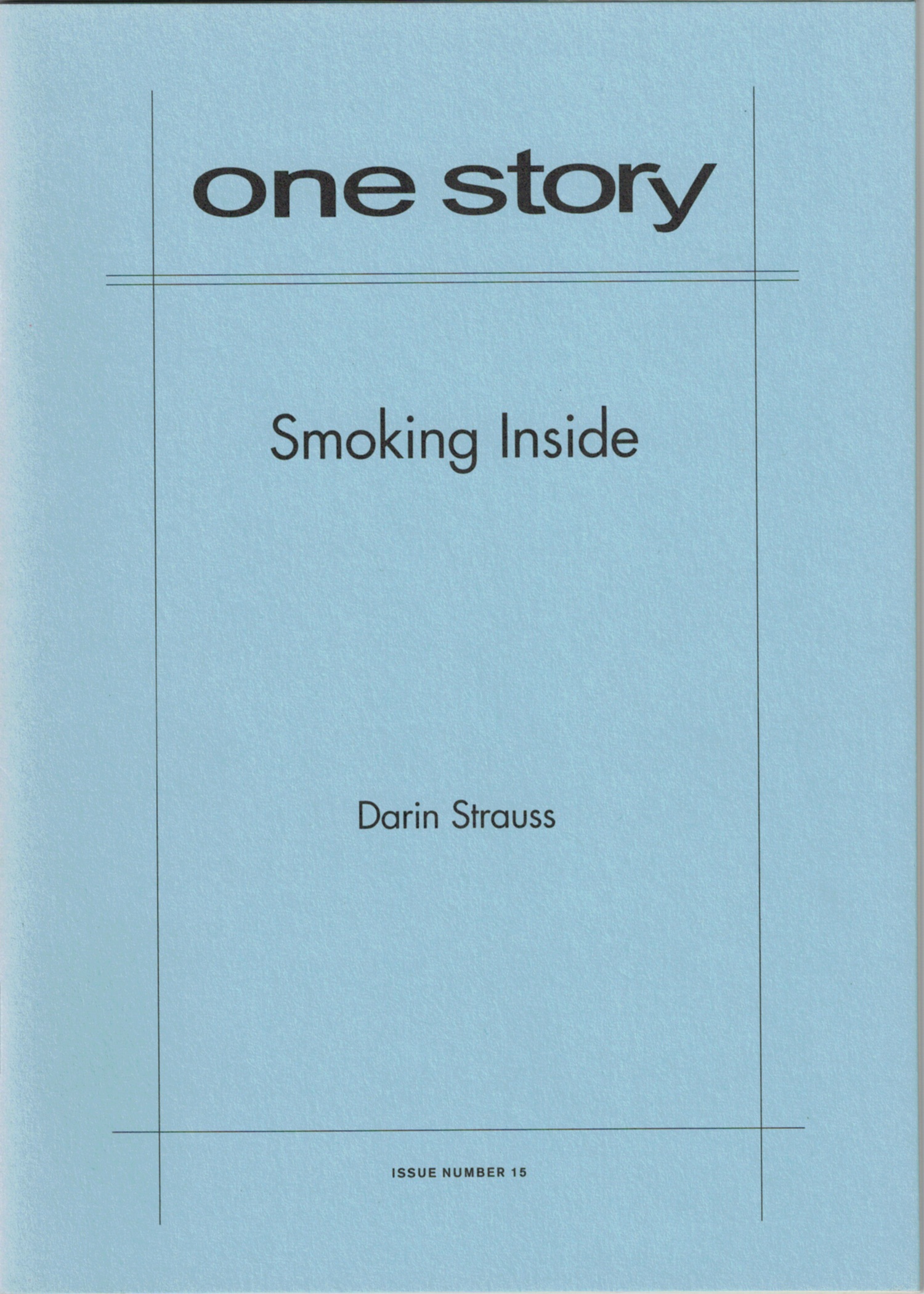
Smoking Inside
$2.50
Sold out
Excerpt
Tragic example of me being a stupid mother came when Morrison, he’s my oldest, packed an onion ring up his nose while his brother peed the carpet on purpose. Little Dylan does that: he pees. I’ll open the door, burned up after eight hours helping morons at the library, and there’s my bony, pale guy standing pants down with his mini-sized Oscar Meyer between his pinkies. Like he’s been waiting to show me for hours. The jukebox in my head starts in on the Beatles “She’s Leaving Home,” but you actually think I’d split? A parent may get notions that are no more than daydreams for herself; she’s better than those.
Darin Strauss
Darin Strauss is the award-winning author of The Real McCoy and Chang and Eng, for which he wrote the screenplay for Disney Films and the director Julie Taymor. His work has been translated into fourteen languages. The movie rights to “Smoking Inside”, the story to appear in One Story, have optioned to the film producer Curtis Burch.
Q&A by Hannah Tinti
- HT: Where did the idea for this story come from?
- DS: I’m not sure. A few years ago I overheard a woman joking about putting her own kids up for adoption, even though they were 8 and 12. She didn’t care that it sounded horrible to joke about that; or, she didn’t realize that it did.
- HT: What was the most challenging aspect of writing this story?
- DS: Making the protagonist likable. I always find that, with the stories I write, that seems to be the hardest part for me. For example in my first book, “Chang and Eng,” I wanted to have the reader sympathize with the famous “Siamese Twins”—which turned out to be a tall order, because the brothers were slave owners in the pre-Civil War South. In my second book, “The Real McCoy,” the protagonist was a liar, a con man, and a jewel thief—but lovable, I hope.
- HT: Is it difficult, as a man, to capture the voice of a woman?
- DS: No, I don’t find one gender more difficult to write about than the other. For my first book, people asked me if it was a challenge to write about Chang and Eng—because their experiences were so different from mine. But I think that no one character is easier to invent than any other character. Each time out, you have to make up a new person. That never is easy for me.
- HT: Did you do any research into child abuse cases regarding procedures, etc?
- DS: No. I don’t do much research, to be honest. I think research can be too easily used as a crutch for a writer of fiction. There’s always a temptation to use it too much.
- HT: Did the plot turn out the way you expected it to Were there any surprises along the way?
- DS: I was surprised at the emotions the protagonist felt at the close of the story. Also, I didn’t originally plan on having her make the same mistake twice. But it seemed right to me.
- HT: What is the best bit of advice about writing you have ever received?
- DS: I have two. One came from Lee K. Abbott, the short story writer. He said that, since most stories are about trouble, a writer should at least consider starting her story at the moment when her main character’s dilemma begins. It sets the ball rolling nicely. The second bit of advice was from E.L. Doctorow, who said, Do the least amount of research you can get away with, and no less.
- HT: What are you working on now?
- DS: I’ve started my third novel, which will be the first long work I’ve done to be set in the present day. Thanks for the questions!